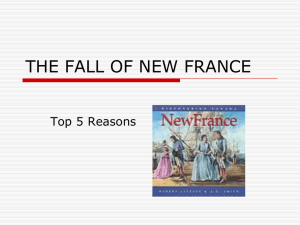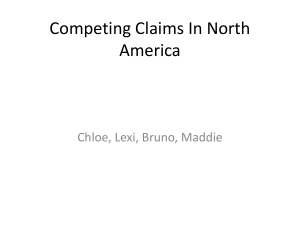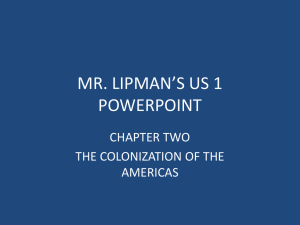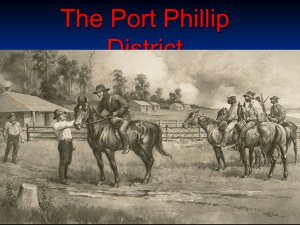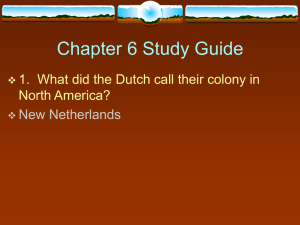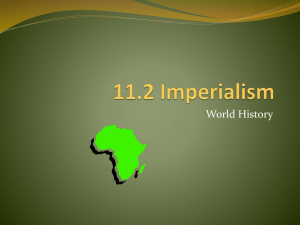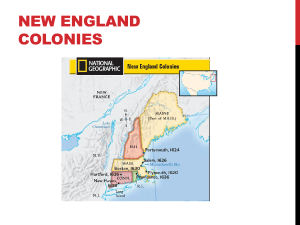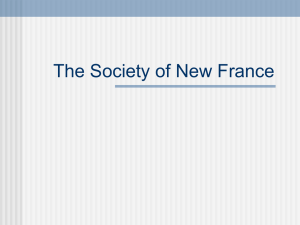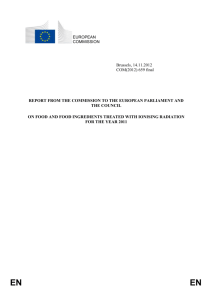New England Colonies
advertisement
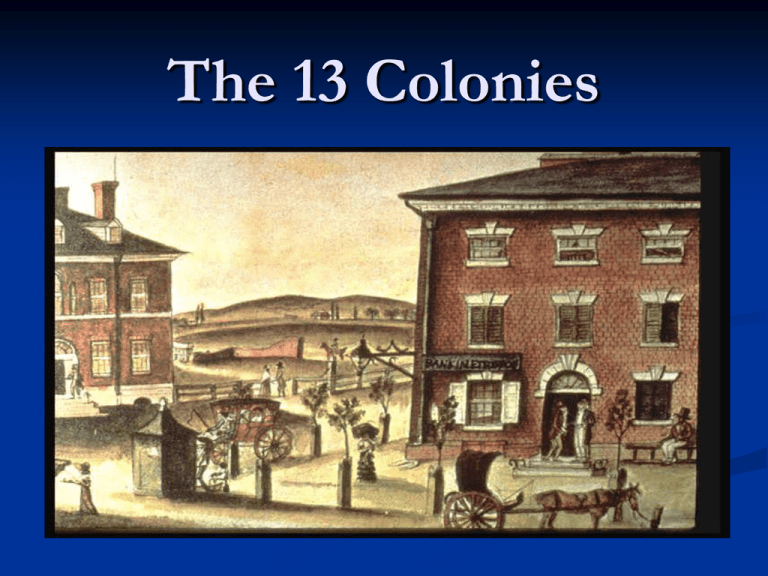
The 13 Colonies New England Colonies: Rhode Island, Connecticut, Massachusetts, New Hampshire A hilly region, first settled by the Pilgrims in 1620. Separatists broke away, some jailed “Pilgrims” leave for America on the Mayflower, followed by Puritans, Quakers, Catholics, Jews, etc. Pull factor? Promise of religious freedom. Rhode Island Founded: 1636 by Roger Williams and others, at Providence Major Industry: Agriculture (livestock, dairy, fishing), Manufacturing (lumbering) Major Cities: Providence Colony Named for: Dutch for "red island" Became a State: May 29, 1790 New Hampshire Founded: 1638 by John Wheelwright and others Major Industry: Agriculture (potatoes, fishing), Manufacturing (textiles, shipbuilding) Major Cities: Concord Colony Named for: county of Hampshire in England Became a State: June 21, 1788 Connecticut Founded: 1636 by Thomas Hooker and others, at Hartford Major Industry: Agriculture (wheat, corn, fishing) Major Cities: Hartford, New Haven Colony Named for: from an Algonquin word, quinnehtukqut, "beside the long tidal river" Became a State: February 6, 1788 Massachusetts Founded: 1630 by John Winthrop and others, at Massachusetts Bay Major Industry: Agriculture (fishing, corn, livestock), Manufacturing (lumbering, shipbuilding) Major Cities: Boston, Quincy, Plymouth, Salem, Lexington, Concord Colony Named for: Massachusetts tribe (word means "large hill place") Became a State: February 6, 1788 Middle Colonies: New York, New Jersey, Pennsylvania, and Delaware Varied landscape, varied settlers Most farmed, but many merchants, shippers and trades people too. Religious diverse; Dutch Calvinist, French, German Lutheran, Presbyterian, Anabaptists and Jewish! Would go on to become prosperous colonies Delaware Founded: 1638 by Peter Minuit and others Major Industry: Agriculture (fishing), Manufacturing (lumbering) Major Cities: Wilmington Colony Named for: named for the Delaware tribe and for an early governor of colonial Virginia, Lord de la Warr Became a State: December 7, 1787 Pennsylvania Founded: 1682 by William Penn and others, at Philadelphia Major Industry: Agriculture (wheat, corn, cattle, dairy), Manufacturing (textiles, papermaking, shipbuilding) Major Cities: Philadelphia, Lancaster, York Colony Named for: William Penn and Sylvania, Latin for "forest" Became a State: December 12, 1787 New York Founded: 1626 by Peter Minuit and others, on Manhattan Island Major Industry: Manufacturing (shipbuilding, iron works), Agriculture (cattle, grain, rice, indigo, wheat) Major Cities: New York City, Albany Colony Named for: Duke of York Became a State: July 26, 1788 New Jersey Founded: 1664 by English colonists Major Industry: Manufacturing (ironworking, lumbering) Major Cities: Trenton, Princeton Colony Named for: Isle of Jersey in England Became a State: December 18, 1787 Southern Colonies: Maryland, Virginia, North and South Carolina, Georgia Climate and soil ideal for growing warm weather crops Agriculture formed the heart, rivers formed the arteries Crops made many planters wealthy Slave labor used for plantation work Maryland Founded: 1633 by Lord Baltimore and others, at Baltimore Major Industry: Manufacturing (shipbuilding, iron works), Agriculture (corn, wheat, rice, indigo) Major Cities: Baltimore, Annapolis Colony Named for: Queen Henrietta Maria of England Became a State: April 28, 1788 Virginia Founded: 1607 by John Smith and others, at Jamestown Major Industry: Plantation agriculture (tobacco, wheat, corn) Major Cities: Jamestown, Williamsburg, Richmond Colony Named for: England's "Virgin Queen," Elizabeth I Became a State: June 25, 1788 North Carolina Founded: 1653 by Virginia colonists Major Industry: Plantation agriculture (indigo, rice, tobacco) Major Cities: Raleigh Colony Named for: from Carolus, the Latin word for "Charles," Charles I of England Became a State: November 21, 1789 South Carolina Founded: 1663 by English colonists Major Industry: Plantation agriculture (indigo, rice, tobacco, cotton, cattle) Major Cities: Charleston Colony Named for: from Carolus, the Latin word for "Charles," Charles I of England Became a State: May 23, 1788 Georgia Founded: 1732 by James Oglethorpe and others Major Industry: Agriculture (indigo, rice, sugar) Major Cities: Savannah Colony Named for: England's King George II Became a State: January 2, 1788
